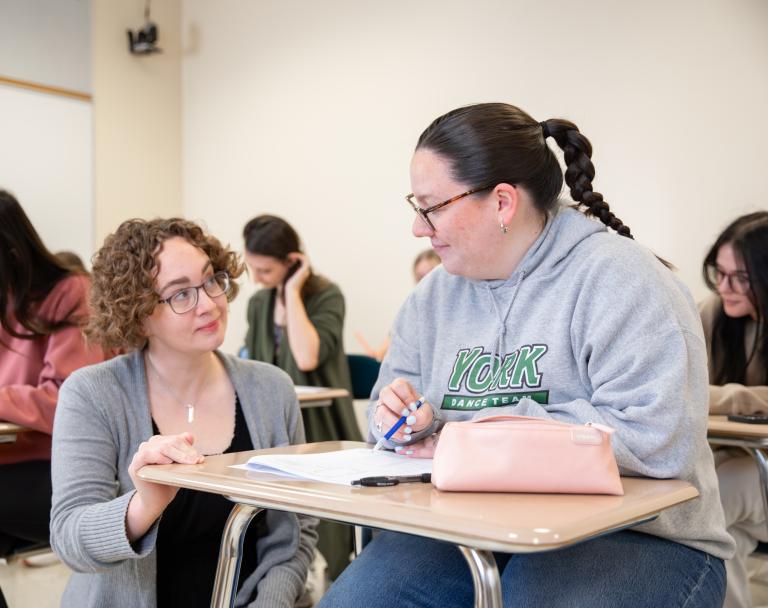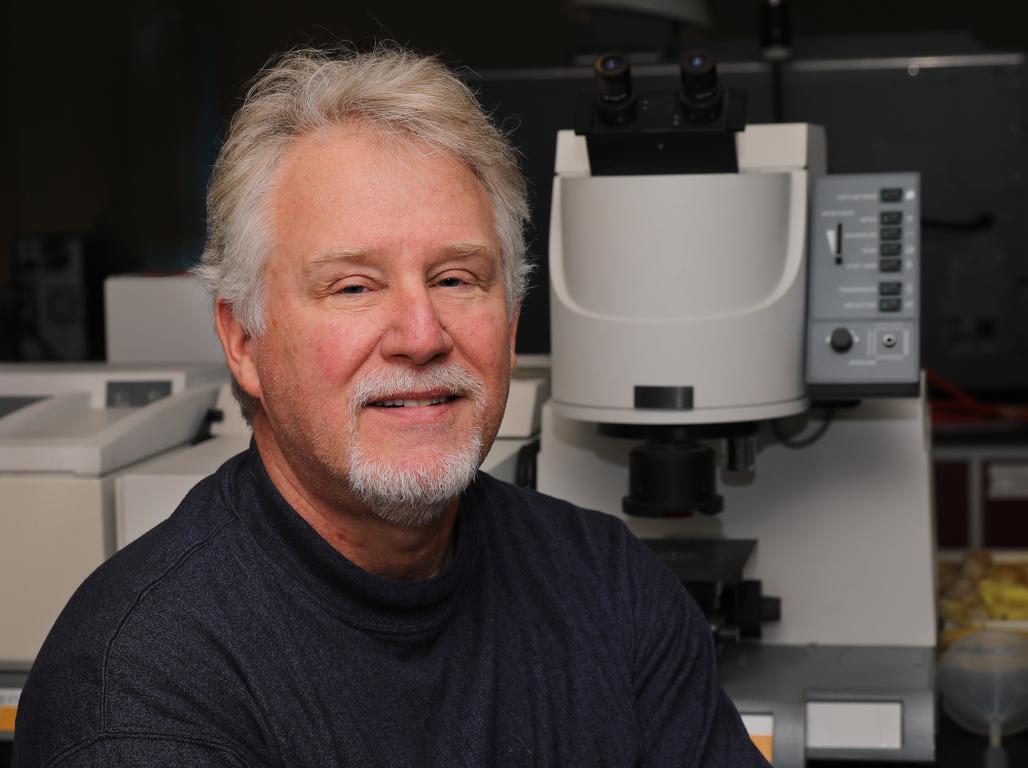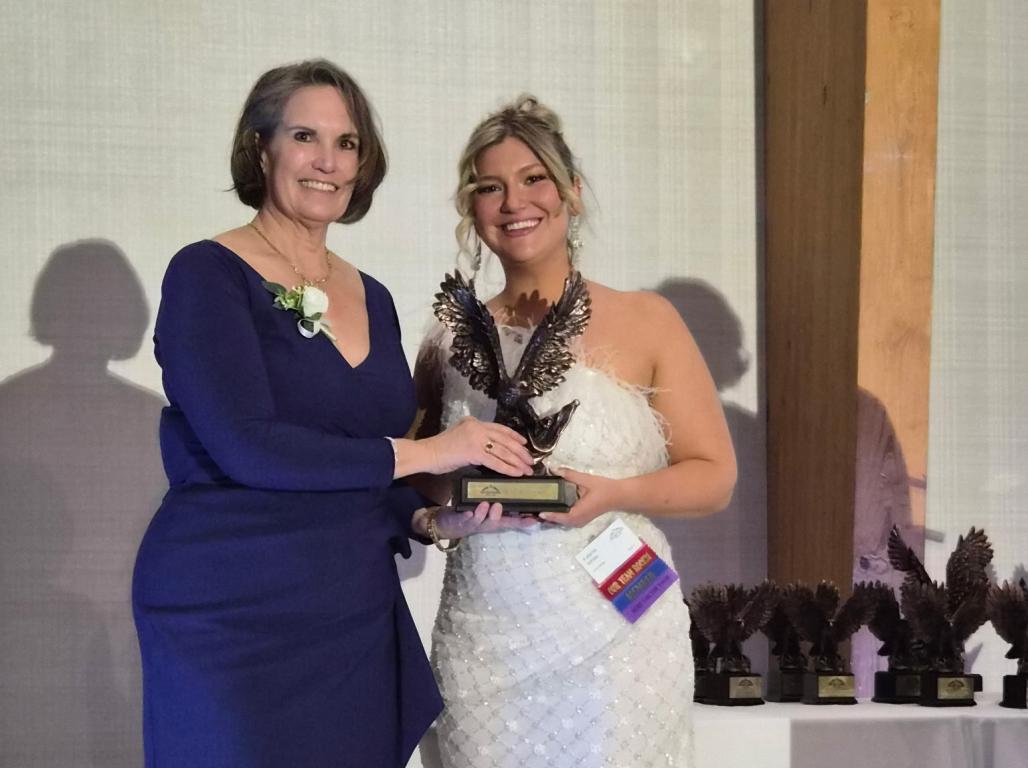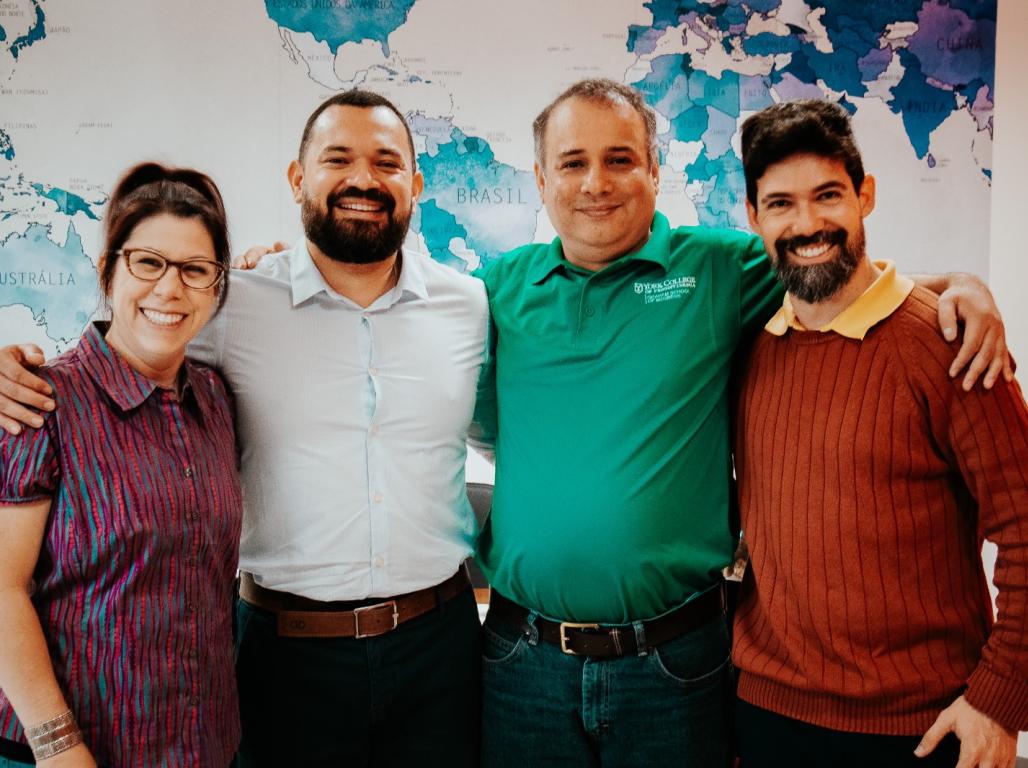The Science of the Slip of the Tongue: Dr. Samantha Deffler Shares Her Research on Name Mix-Ups

Dr. Samantha Deffler shares how she became interested in studying name mix-ups and how her research from nearly 10 years ago remains relevant today.
Have you ever called out to a family member or friend and found yourself cycling through a list of names before landing on the correct one? Believe it or not, this is a common mistake people make, and it doesn’t have to do with a faulty memory.
Dr. Samantha Deffler, an Associate Professor of Psychology at York College of Pennsylvania, was interviewed for a July 2024 article published in The Wall Street Journal on the topic. She even completed a study that provided valuable insights into this phenomenon. Now, nearly a decade later, she’s sharing the impact of her research and why it is still so important.
“Every couple of years, this study pops up,” Dr. Deffler said, “and I think it has lasting power because it’s so accessible to everyday people to think about the way that they remember and the way that they organize information, which we can then use as a stepping stone to think about other memory processes.”
The Origins of the Slip
Ever since her graduate school days, Dr. Deffler has always been interested in naming mistakes and understanding why they happen, especially with familiar individuals. Was it something that could be predicted, and were certain types of naming mistakes more common??
Determined to better understand this common slip-up, Dr. Deffler and her team created a survey in graduate school asking various questions related to name mix-ups.
“We did this by asking a lot of people survey questions from the perspective of being called the wrong name or committing the act of misnaming, and we analyzed the data in a number of ways,” Dr. Deffler said. “We looked at whether the names that were being substituted were phonetically similar - if they sounded similar - and we also looked at the relationship among all of the individuals; what is the relationship between the person using the wrong name and the person they’re trying to name? What’s the relationship between the named people - the person you are trying to call the correct name, and the wrong name that you use?”
The people involved in the study were either logged in at her university, Duke University, or did it through Amazon Mechanical Turk (MTurk), and they were compensated either monetarily or with course credit. A number of different study samples were also taken because every time Dr. Deffler and her team got a result, they would try to replicate it and give it to other samples. Age-related differences were closely examined, but the team ultimately couldn’t find anything conclusive.
Dr. Deffler did find that certain names were grouped into the same semantic categories—common familial memories. Family members were often called by other members, including siblings and even family pets. Friends were misnamed as one or more friends, not just random names. Despite the many factors that could be considered in the name mix-ups, conceptual similarity was always a common presence.
Remaining Relevant
While this information may be interesting in passing, many people may argue that it’s not that grand of a discovery. If that’s the case, why does a study like this stay so relevant, even now?
“I think it opens everyday people up to thinking about how their memory works,” Dr. Deffler said. “It’s a really accessible way of thinking about memory errors.”
“It’s something that has happened to a lot of people, and it allows them to think about the things that I teach in my cognitive psychology classroom. How do you remember things? How is that information organized? Why do we make mistakes? Are those mistakes worrisome, or are they a normal product of the memory system?”
Most of Dr. Deffler’s graduate training focused on autobiographical memory, specifically how people remember events from their lives. She is still very passionate about this topic, even as her focus has shifted over time. Her passion for doing research, especially with undergraduate students, influenced her reasoning for coming to work at York College.
Now, she is researching how people store information and remember things and how that can be applied to the classroom.
Sabbatical Studies
During her sabbatical, Dr. Deffler has been working on a study that will provide free online educational resources for students to learn how to create better study habits.
“I can tie that to this misnaming study,” Dr. Deffler said, “because again, looking at misnaming tells us something about how we store information, how we cue information, how we recall that information, and why we might make mistakes amongst certain similar types of information.”
With this study, she is teaching students empirical, or scientifically sound, ways to study effectively and actively engage with the material they are working with. This involves exploring other methods besides rereading textbooks, highlighting material, and passively rewriting notes. It challenges students to find ways that allow them to form strong connections with the information to decrease the chances of making mistakes on exams.
Dr. Deffler is currently writing many open educational resources to be distributed to students. She will then empirically test whether they actually benefit students.
With her fellow collaborator, Dr. Carla Strassle, Professor of Psychology and Director of Experiential Learning, Internships, and Practica, they will ask students to analyze their studying habits. She collected pre-intervention data in their classes by asking students how they were studying. After they are exposed to the materials, they will do a ‘post-intervention’ test to revisit their study habits.
“And anecdotally, I’ve seen this, particularly in my statistics class,” Dr. Deffler said, “where after the first exam, students are really struggling and they either give up, which is not what we want, or they come to office hours, and they ask, “Hey, what am I doing wrong? How can I change?” And my students who do that do really well on future exams.”
She hopes that if they can quantify that progress empirically and with materials that students can access for free online, then that would be the ‘golden’ standard for how this can be effective.
Dr. Deffler has also been working with collaborators from Virginia to write a few chapters of a cognitive psychology textbook that will be free.
Advice for the New Researchers
When it comes to sharing advice regarding students starting their own research studies, Dr. Deffler highly recommends meeting with a professor they enjoy interacting with and whose interests align with theirs during office hours.
“What [students] really need is the expert that’s going to give them the guardrails of 'Here’s what you can feasibly do,’ and that extra set of eyes is going to ask, ‘Hey, are you actually measuring what you want to measure? Are you actually designing this in a way where you can answer those questions?’” Dr. Deffler said.
“If a student has an interesting question, the first step should be a professor who knows a little bit about that or can point them to somebody else who knows even more.”
So even if your question lies in exploring better study habits or understanding why you keep calling your sibling by your pet’s name, don’t be afraid to ask questions. Find someone who can help guide you, and soon enough, you may find yourself publishing articles about your own research.
“Find a mentor,” Dr. Deffler said. “Don’t be afraid to ask for mentorship.”




